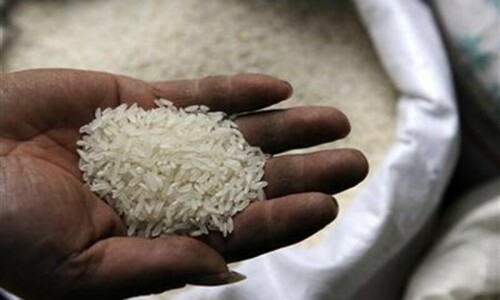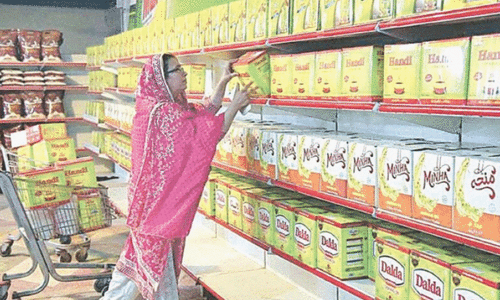A SCENE from a Pakistani television drama shows an emotionally fraught woman, begging a psychiatrist to give her something that will make her feel numb. The psychiatrist agrees, prescribing medications and providing suggestions for ways to relax.
In its way, the scene shows progress in Pakistan, a normalisation on popular television of the help that mental health professionals can provide. Yet as much as we might wish there was a simple medication to eradicate disturbing behaviour and unpleasant feelings, the scene oversimplifies the complexities underlying mental illness. In the end, it is another missed opportunity to clear up misconceptions about what mental illness is and what it is not. It also misrepresents what a seasoned mental health professional would say and do in such a situation.
Conservatively, an estimated 15 million Pakistanis suffer from some form of mental illness, roughly one of every 16 people. Yet the burden of meeting their treatment needs falls on some 400 trained psychiatrists and a handful of fully trained child and adolescent psychiatrists. Their task, which includes educating people about mental illness, clarifying misperceptions, and integrating mental health into the broader healthcare system beyond providing direct patient care, can seem overwhelming. All of this has been further intensified by the global havoc wreaked by the Covid-19 pandemic.
The media, effectively used, can help. Media outlets have the power to shape the perception of the audience. For many, it’s a major source of information, consumed with great fervour. In Pakistan, a country severely short of professional mental healthcare, the media can and must play a dual role — to accurately present the scope and nature of the mental health crisis, and to provide information and narratives that can help both those suffering from mental illness and those trying to help them.
Content creators can foster hope of recovery.
To take a step further, both the news media and television dramas should team up with mental health professionals who can help them get these depictions right — the representation of mental health issues, the role of treatment, and the importance of therapeutic relationships. Ongoing collaboration between content creators, media production, and mental health experts can extend from content creation to content critique and review after shows have aired. Most importantly, by seeking the help of experts, content creators can avoid inadvertent harmful stereotypes and foster hope of recovery.
The media have played an important part in bringing to life the experiences, pain, and suffering of those affected by mental health issues. However, often overlooked is how medical and mental health professionals are portrayed. Frequently, they are shown as distant or judgemental rather than engaged and professional.
Just as it is important to highlight the impact of adversity and destitution on human psychological health and the expression of mental illness, it is also essential to portray the compassion, knowledge, and effectiveness of quality mental health professionals in treating those who need their help most.
People are too often reticent to seek help for social and cultural reasons. Issues of trauma, domestic violence, and childhood physical and sexual abuse lurk in the shadows, whispered in hushed tones for far too long. They are now finally being talked about out loud. However, this requires thoughtfulness, and consultation with professionals to ensure accuracy so the mentally ill are not further marginalised, stigmatised, blamed, or re-traumatised. For the popular media, this is a heavy burden to bear: to talk about the unspoken horrors of violence and trauma in a sensitive way that doesn’t normalise or glamorise bad behaviour, corruption, wickedness, and in some instances, just plain evil.
Some television drama series have done this in a sensitive and thoughtful manner, and tackled the topics of child abuse, youth substance use, parenting challenges, and trafficking with grace and accuracy. Udaari, Pinjra, and Dil Na Umeed To Nahin have taken steps in the right direction. They humanised the victims of trauma and the subsequent psychological manifestations, and promoted empathy. They were able to provide hope, and poignant performances elevated art to mastery.
After years of being shrouded in silence, the challenges and scope of mental illness are emerging in conversations across Pakistan. Now, media and mental health professionals should work towards creating responsible content that aligns with the duty of ethical reporting and responsible storytelling. We all learn from stories and there is no better way to secure attention, affect perceptions, and promote awareness.
The writer is a child and adolescent psychiatrist.
Published in Dawn, February 7th, 2024










































Dear visitor, the comments section is undergoing an overhaul and will return soon.